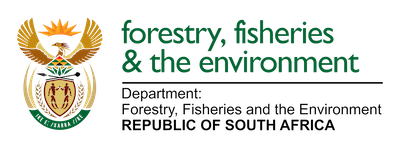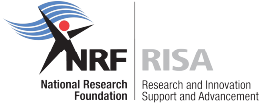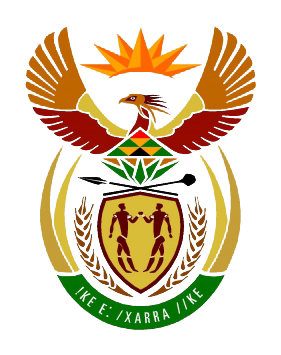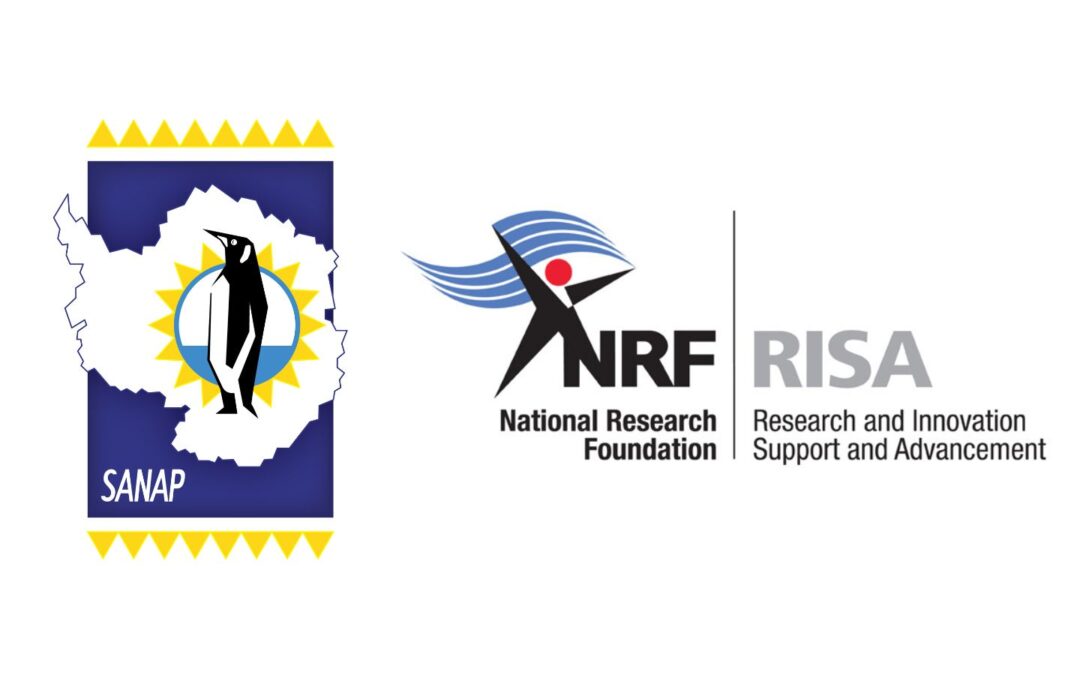
by Ria Olivier | Dec 11, 2020 | Announcement, Research, SANAP, SCAR, Science
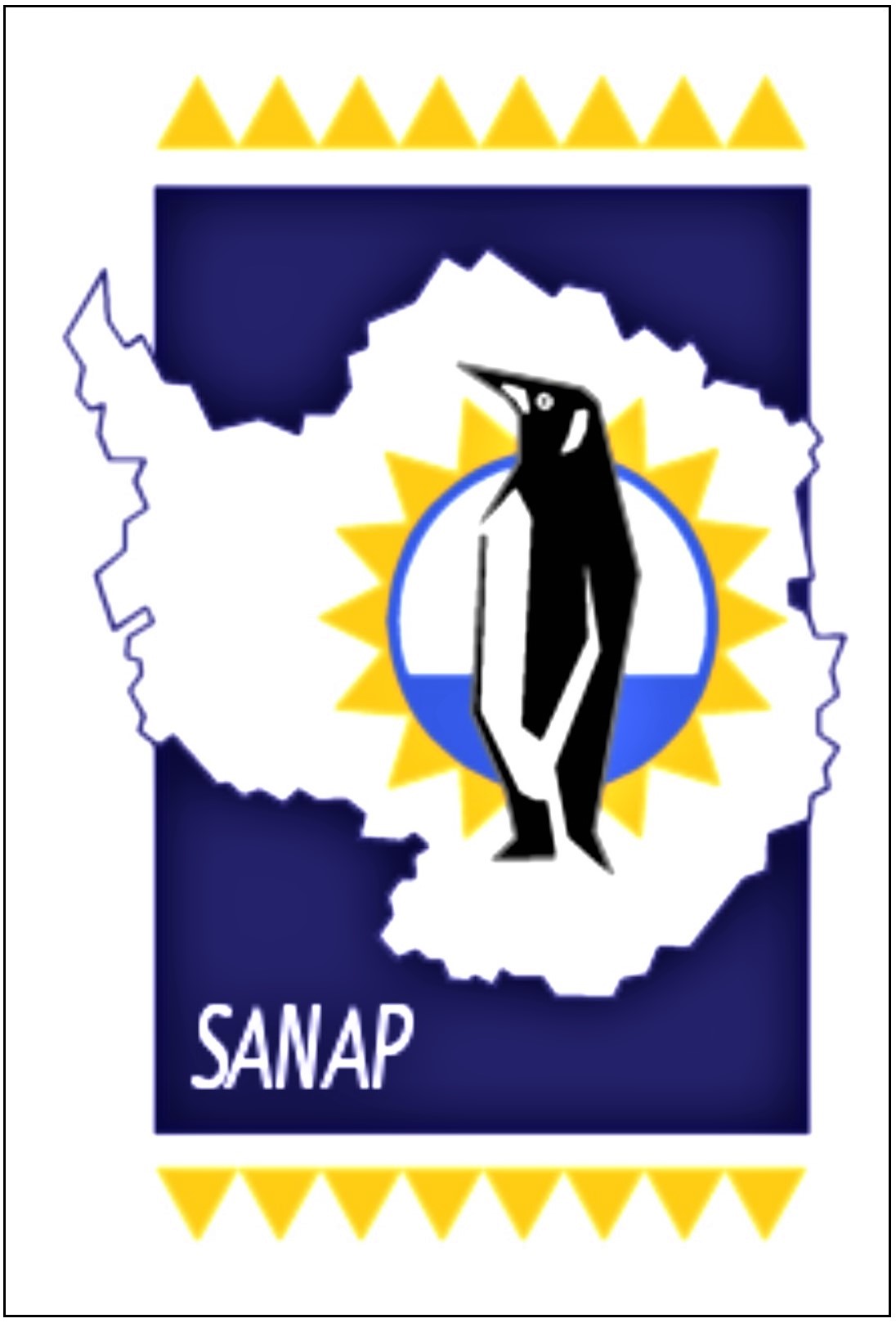

| Research Project | Affiliation | Principal Investigator |
| SAMOC-SA | Bayworld Centre for Research and Education | Lamont, T DR |
| Contemporary and Future Drivers of CO2 and Heat in the Southern Ocean | CSIR - Natural Resources and the Environment | Nicholson, S DR |
| Seasonal Iron speciation in the Southern Ocean, from open ocean environments to naturally fertilized sub-Antarctic Islands (Marion and Gough Islands) | Department of Environmental Affairs | Mtshali, TN DR |
| Avian scavengers as indicators of recovery of an island biota | Nelson Mandela University | Connan, MA DR |
| SANAE HF radar | South African National Space Agency (SANSA) | Kosch, MJ Prof |
| Polar Space Weather Studies | South African National Space Agency (SANSA) | Lotz, SI DR |
| The Digital SA Agulhas II - Flagship for Vessel 4.0 | Stellenbosch University | Bekker, A PROF |
| Antarctic Legacy of South Africa | Stellenbosch University | Olivier, M Ms |
| Signal Processing and Control of a long-range Unmanned Surface Vehicle for Cetacean Detection in the Antarctic and Southern Seahttps://www.ee.sun.ac.za/djjversfeld/ | Stellenbosch University | Versfeld, DJJ PROF |
| SEAmester-South Africa's Floating University | University of Cape Town | Ansorge, IJ PROF |
| Parallel cycling of nitrogen and iron in the upper Southern Ocean: implications for biological CO2 drawdown and global ocean fertility | University of Cape Town | Fawcett, SE DR |
| Influence of physical and biogeochemical processes on the Mechanical properties of Antarctic Sea Ice | University of Cape Town | Rampai, T |
| Landscape and climate interactions | University of Fort Hare | Nel, W PROF |
| Observing Dawn in the Cosmos | University of KwaZulu-Natal | MOODLEY, K PROF |
| Comparative microbial ecology of pan-Antarctic soils | University of Pretoria | COWAN, DA PROF |
| Marion Island Marine Mammals in Changing Environments: Individual Heterogeneity and Population Processes | University of Pretoria | de Bruyn, PJN PROF |
| Africa, Antarctica and the Arts | University of Pretoria | Lavery, CM DR |
| Enhanced insights regarding the ecology, evolution and function of marine microbiomes | University of Pretoria | Makhalanyane, TP PROF |
| Ross seal ecology, behaviour and physiology in a changing environment | University of South Africa | McIntyre, T DR |
| | |
See more detail of project here. This schedule will be update on the SANAP website under research in January 2021.

by Ria Olivier | Oct 7, 2020 | Announcement, Antarctica, News, Research, SANAP, SCAR
The SCAR-Executive approved support for work to be undertaken by the Standing Committee on the Humanities and Social Sciences about the impacts of COVID-19 on Antarctic research and researchers. Should anyone wish to communicate with the community considering these questions please get in touch with the SC-HASS group leaders. Background to the survey can be found in the YouTube links of SCAR2020 Online:
Plenary Presentation by Dr. Daniela Liggett
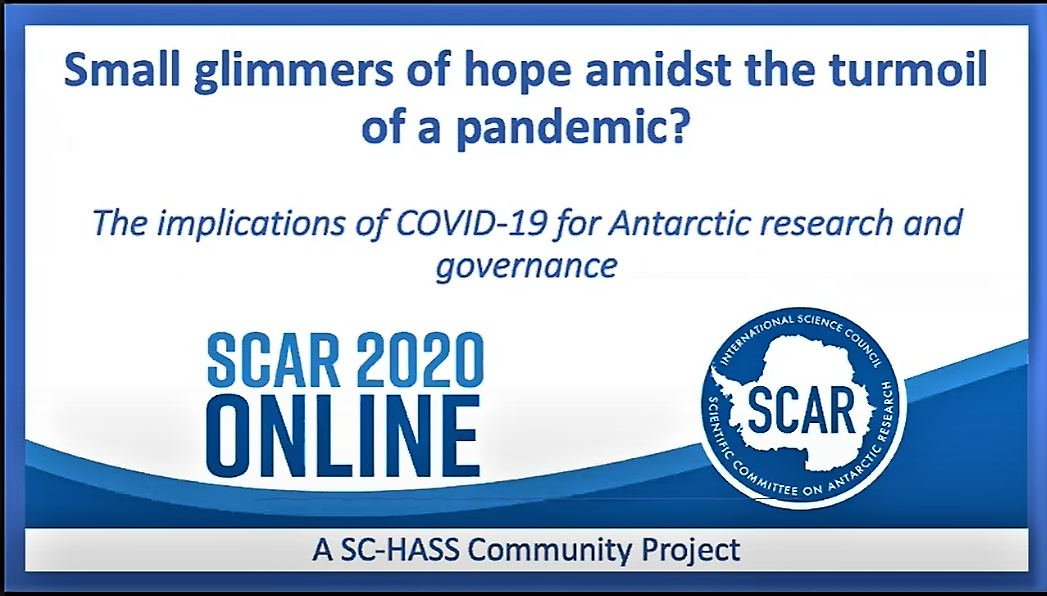
 Discussion: Impact of COVID-19 on Antarctic Research – joint SCAR/COMNAP Panel
Discussion: Impact of COVID-19 on Antarctic Research – joint SCAR/COMNAP Panel
The SC-HASS Antarctic COVID-19 Research Group has prepared a survey to learn more about the impact of COVID-19 on the Antarctic research community. We invite all Antarctic researchers, support staff, students, and anyone else involved in Antarctic research or logistics to complete this survey. Your response will help us to understand how we as a community are affected and will inform strategic decisions to mitigate impacts. Please share the link to this survey with your networks. Note that the survey is set to close by 8 November 2020. We appreciate your participation before that time. If you have any questions, please contact Andrea Herbert (andrea.herbert@canterbury.ac.nz) or Daniela Liggett (daniela.liggett@canterbury.ac.nz).
 Link to the survey: http://canterbury.qualtrics.com/jfe/form/SV_8qsgGl4oyuVjxQx
Link to the survey: http://canterbury.qualtrics.com/jfe/form/SV_8qsgGl4oyuVjxQx
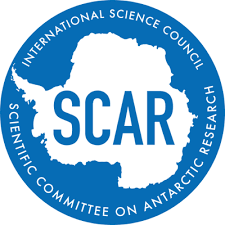
by Ria Olivier | Jul 25, 2020 | Antarctica, Research, SANAP, SANAP Student, SCAR
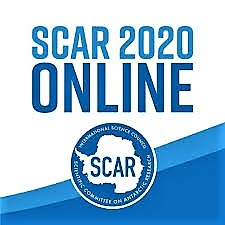 SCAR2020 Online starts on Monday 27th July with related events, with the conference starting on Monday 3rd August till 7th August with an APECS workshop from 11-13 August2020.
SCAR2020 Online starts on Monday 27th July with related events, with the conference starting on Monday 3rd August till 7th August with an APECS workshop from 11-13 August2020.
“ SCAR’s Open Science Conferences have been a focal point for the Antarctic research community for over fifteen years. Through SCAR 2020 Online we are excited to present many of the highlights of the science we had originally planned to bring to you at the Hobart OSC, which was sadly cancelled due to the COVID-19 pandemic.”
SCAR2020 online include Plenary Events, Workshops, Mini-Symposia and Related events
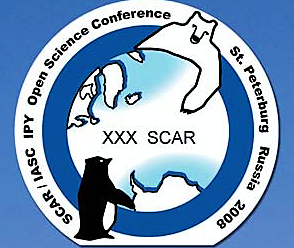
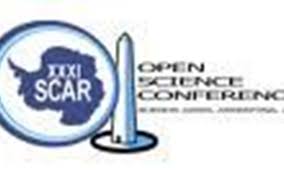
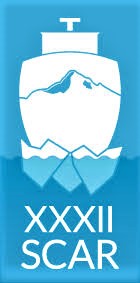
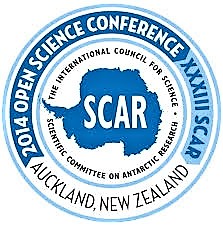
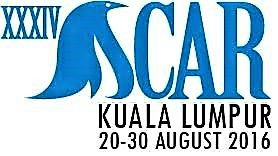
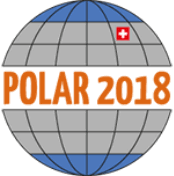 South Africa has been part of SCAR since 1959 and over the years researchers of South Africa attended these conferences. Over the past decades, principal investigators of SANAP and their students gave oral and poster presentations. This year the XXXVI SCAR was scheduled to be held in Hobart, Tasmania, Australia from 31 July to 11 August 2020. A big group of South Africans were going to attend this meeting. Scientists, researchers and students submitted abstracts for the conference, although not all of these will be orally presented (some will be available on virtual display). All the abstracts have been compiled in a book of abstracts.
South Africa has been part of SCAR since 1959 and over the years researchers of South Africa attended these conferences. Over the past decades, principal investigators of SANAP and their students gave oral and poster presentations. This year the XXXVI SCAR was scheduled to be held in Hobart, Tasmania, Australia from 31 July to 11 August 2020. A big group of South Africans were going to attend this meeting. Scientists, researchers and students submitted abstracts for the conference, although not all of these will be orally presented (some will be available on virtual display). All the abstracts have been compiled in a book of abstracts.
| SCAR2020 Online – Related Events (UTC time) |
| Monday, 27 July 2020 |
| * |
0600-0800 |
Session 25 |
Sea ice in the atmosphere-ice-ocean-biosphere system |
| * |
0930-1130 |
Session 36 |
Antarctic Heritage |
| * |
1100-1300 |
Session 25 |
Sea ice in the atmosphere-ice-ocean-biosphere system |
| * |
1200-1530 |
Session 36 |
Environmental factors driving diversity and composi on of fossil and living Antarctic communities |
| Tuesday, 28 July 2020 |
| |
1300-1600 |
Meeting |
SOOS West Antarctic Peninsula and Scotia Arc Regional Working Group Committee meeting |
| * |
1300-1500 |
Session 41 |
Living and Working in Antarctica, Session A |
| |
1400-1600 |
Workshop |
Biogeochemical Argo Workshop |
| |
1800-2230 |
Session 5 |
Antarctic Sea ice variability and change |
| * |
2000-2200 |
Session 41 |
Living and Working in Antarc ca, Session B |
| Wednesday, 29 July 2020 |
| |
0500-0800 |
Session 46 |
Public Engagements with Antarc ca in a Changing Climate |
| |
1200-1400 |
Session 36 |
Environmental factors driving diversity and composi on of fossil and living Antarctic communi es – Session 2 |
| Thursday, 30 July 2020 |
| |
0900-1100 |
Session 45 |
Inclusive Collaborations in Antarctic Research |
| |
1800-2200 |
Workshop |
ASPeCt* Workshop |
| |
2000-2130 |
Meeting |
Geothermal Heat Flow Side Meeting |
| Friday, 31 July 2020 |
| |
0600-0800 |
Session 37 |
The ATS, Interna onal Law and Governance, Session 2 |
| |
1300-1500 |
Session 37 |
The ATS, Interna onal Law and Governance, Session 2 |
Above schedule for 27th -31st July. “The full program will be uploaded in coming days on the SCAR2020 website. Please note that session start and end times may change slightly in the final program to allow for smooth transition between sessions.” See schedule with an indication(*) of where South Africans will be participating – the schedule will change over the next two weeks, follow us on Twitter (@Antarcticlegacy) and FaceBook to keep track of changes. Below this week schedule.
All the best to all our presenters during SCAR2020 Online!!
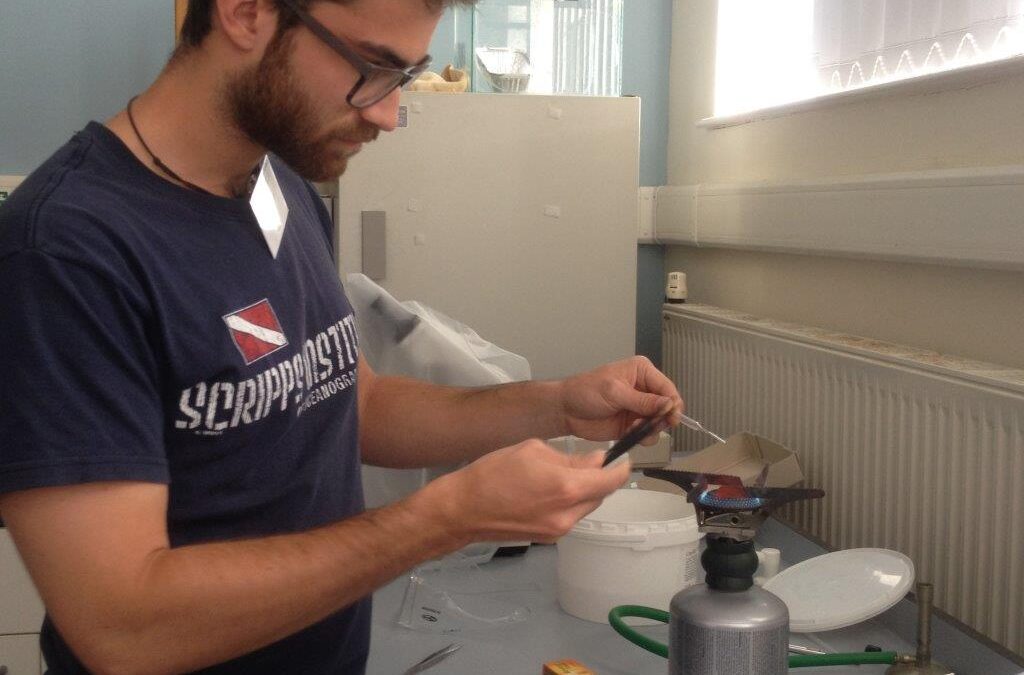
by Ria Olivier | Jun 20, 2020 | Research, SANAP, SANAP Student, SCAR, Science, Southern Ocean, Uncategorised

 Luca Stirnimann received his BSc at the University of Genova (Italy) in 2013, majoring in Environmental Science. He was introduced to his first marine applications of ecology and taxonomy during a summer school spent on the Linosa Island (Mediterranean Sea) as an undergraduate, investigating invasive marine alien species. During his MSc in Genova, he could study time series and regime shifts analysis on plankton systems. After graduated summa cum laude in Marine Sciences (2015) at the University of Genova, he spent one year at the Marine Biological Association (Plymouth, UK) attending the MRes in Marine Biology, where he could continue his studies on plankton and experimenting the life as a scientific researcher.
Luca Stirnimann received his BSc at the University of Genova (Italy) in 2013, majoring in Environmental Science. He was introduced to his first marine applications of ecology and taxonomy during a summer school spent on the Linosa Island (Mediterranean Sea) as an undergraduate, investigating invasive marine alien species. During his MSc in Genova, he could study time series and regime shifts analysis on plankton systems. After graduated summa cum laude in Marine Sciences (2015) at the University of Genova, he spent one year at the Marine Biological Association (Plymouth, UK) attending the MRes in Marine Biology, where he could continue his studies on plankton and experimenting the life as a scientific researcher.
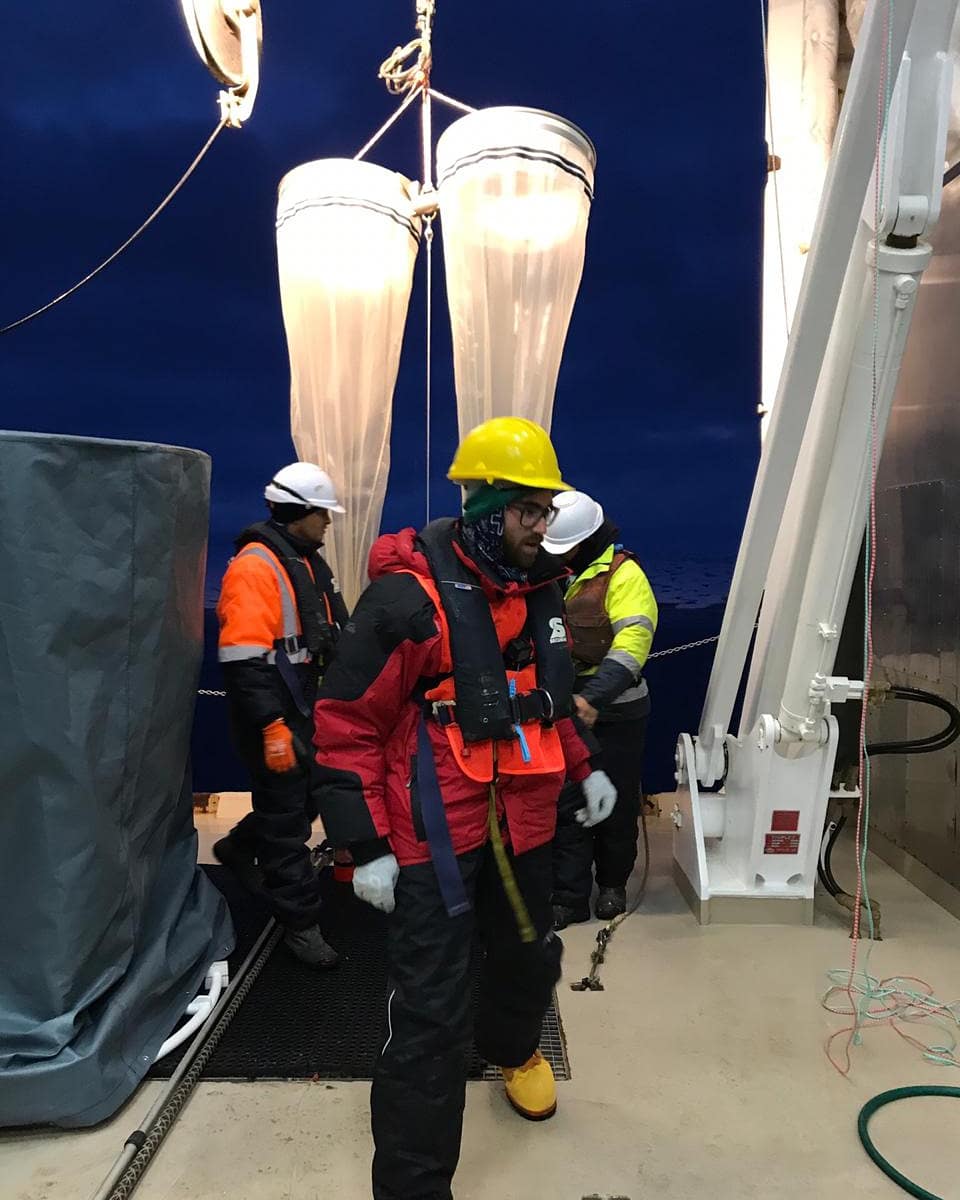

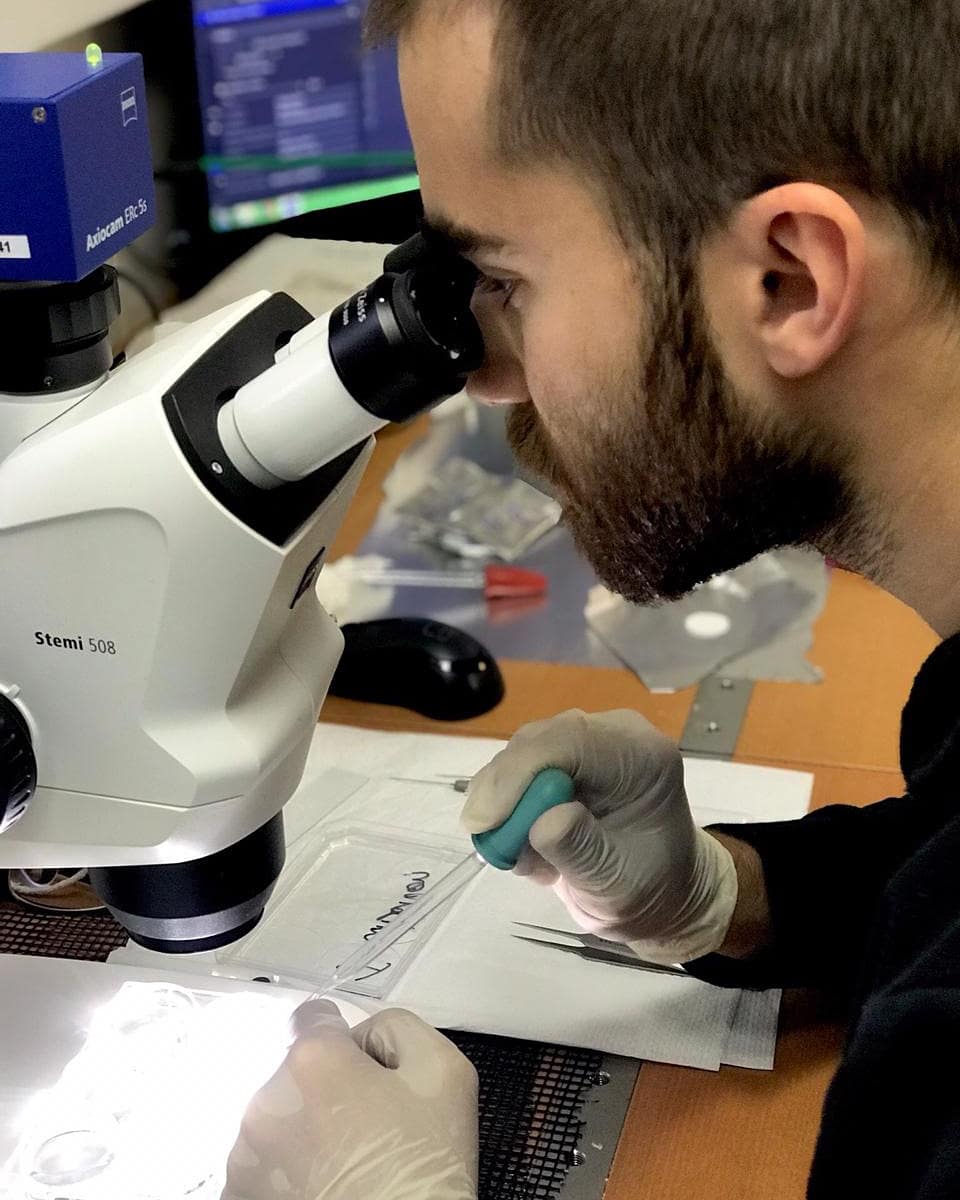
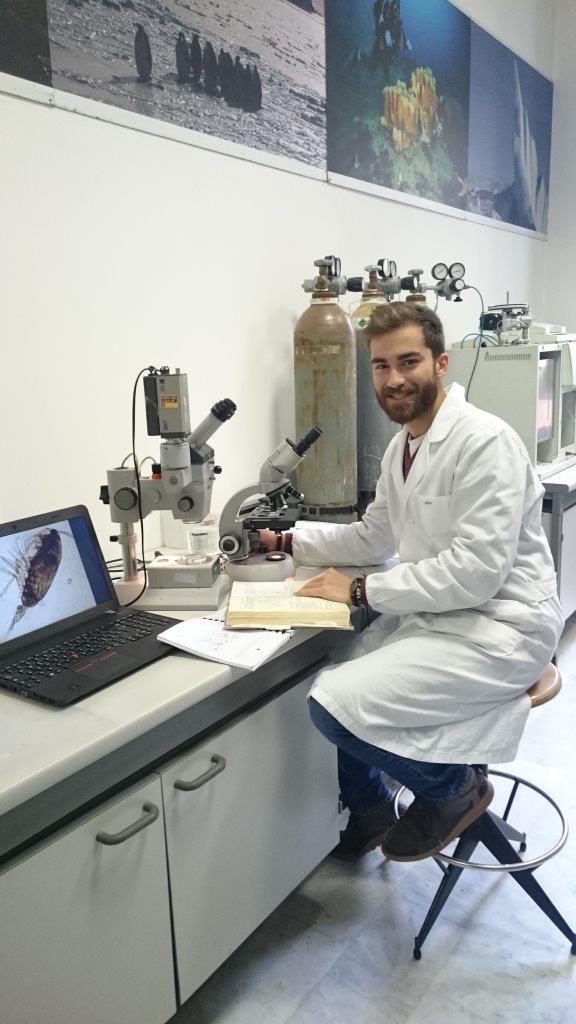 From 2017, he is a PhD student at the University of Cape Town. He analyses the samples he collected during several expeditions to Antarctica, in order to investigate zooplankton and phytoplankton dynamics in the Southern Ocean in the context of nutrient cycling and primary production. He is comparing ecosystem dynamics in the vicinity of Subantarctic island systems with the open Southern Ocean. Luca’s project falls under the current SANAP Project: “A nitrogen cycle view of atmospheric CO2 sequestration in the Antarctic Ocean” (Principal Investigator: Dr SE Fawcett, University of Cape Town)
From 2017, he is a PhD student at the University of Cape Town. He analyses the samples he collected during several expeditions to Antarctica, in order to investigate zooplankton and phytoplankton dynamics in the Southern Ocean in the context of nutrient cycling and primary production. He is comparing ecosystem dynamics in the vicinity of Subantarctic island systems with the open Southern Ocean. Luca’s project falls under the current SANAP Project: “A nitrogen cycle view of atmospheric CO2 sequestration in the Antarctic Ocean” (Principal Investigator: Dr SE Fawcett, University of Cape Town)
Why you love your career in science?
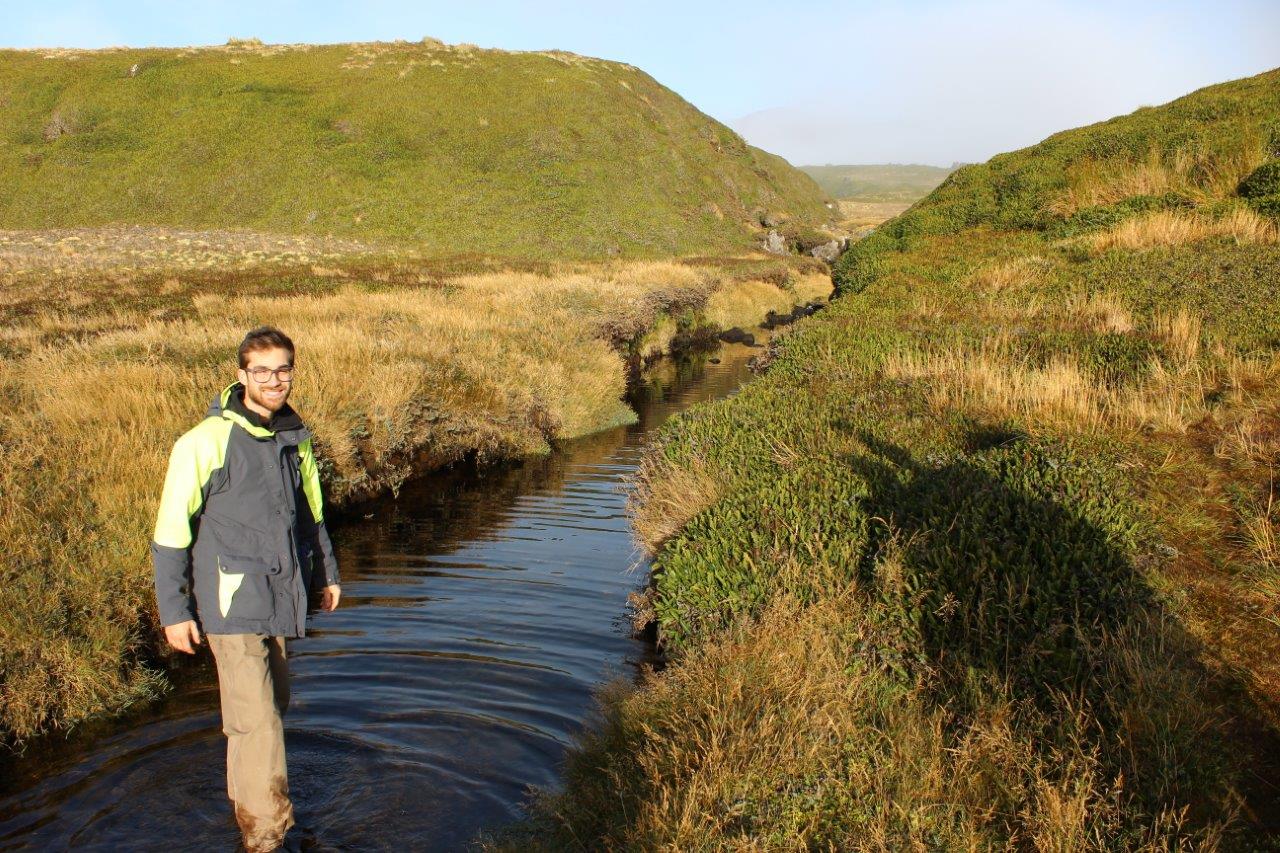
 Earth science, in general, has always been fascinating to me and since I was little, my desire was to discover and learn new things related to our oceans.
Earth science, in general, has always been fascinating to me and since I was little, my desire was to discover and learn new things related to our oceans.
As I do love Sherlock Holmes stories, in this job I see myself as a detective that has to solve a case. In fact, any phenomenon in nature may be more or less complicated to be described or understood, but the samples and the analysis are like clues of a case and using them, it is possible to solve any scientific mystery.

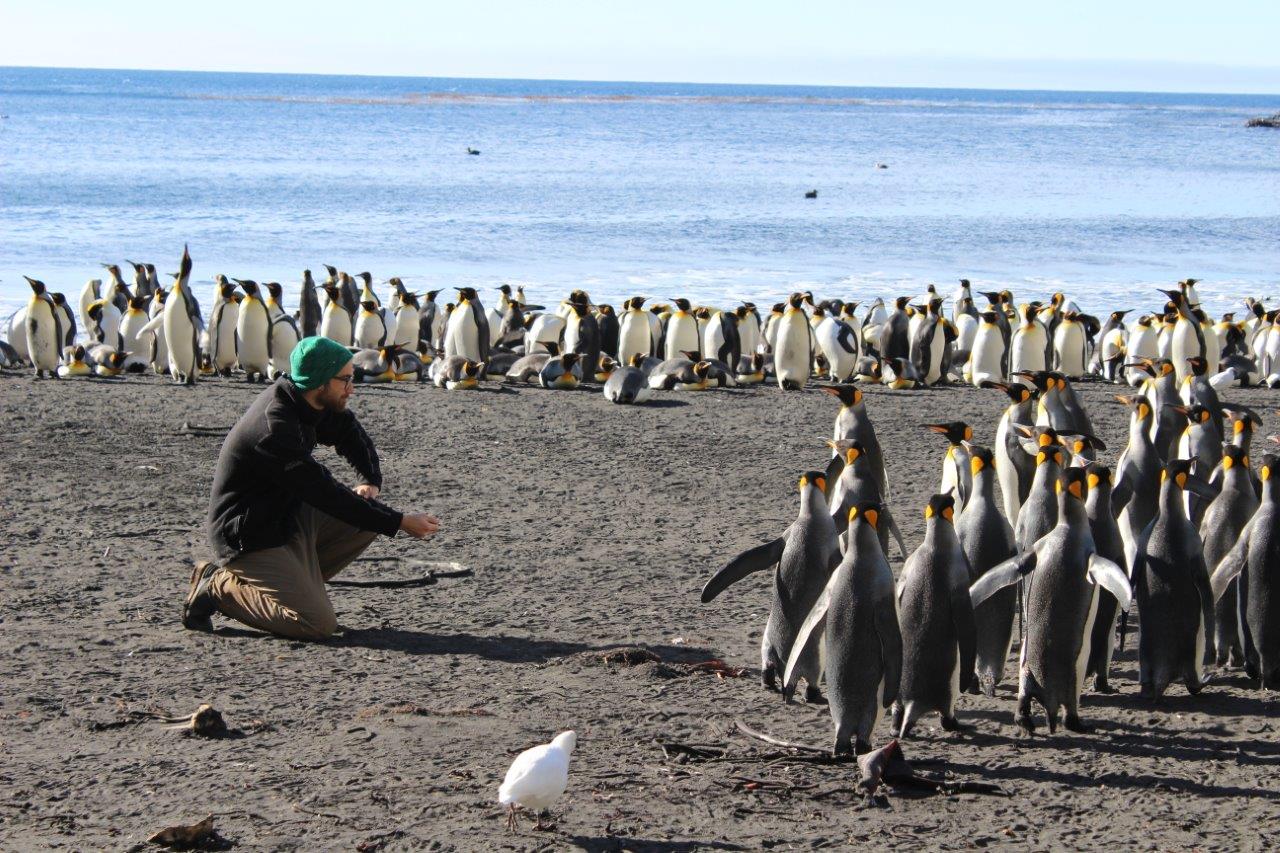
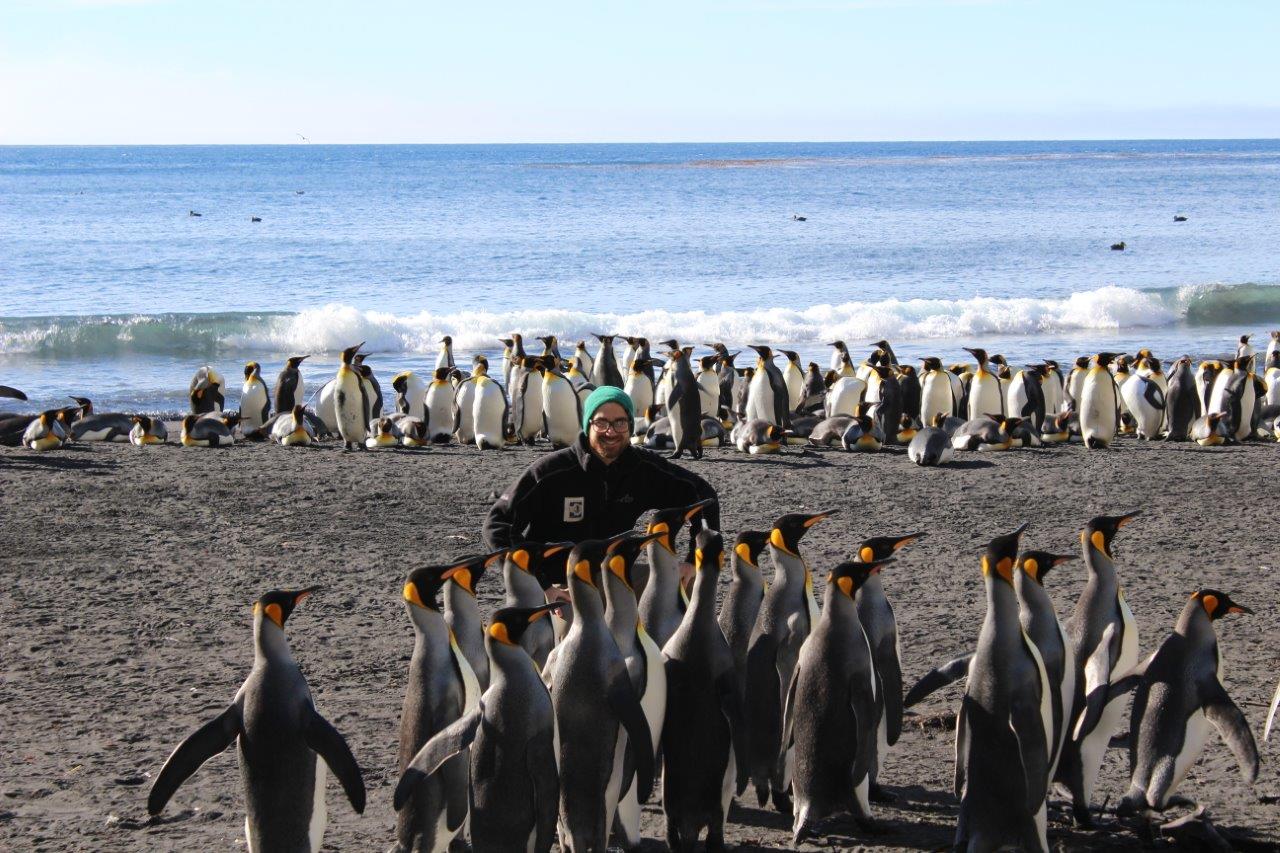 Thanks to oceanography, I can attend fantastic expeditions anywhere in the world, exploring from the icy polar seas to the warmer waters of the equator, spending weeks or even months on board of research vessels. During these trips, I always meet colleagues and extraordinary scientists that share the same interests and passions of mine, even if they are from different fields. Furthermore, coming to South Africa, I joined two great scientific communities: one is the SANAP group, where all the experts of the Antarctic systems meet all together to share their works and thoughts; and the second, the South African Association of Polar Early Career Scientists (APECSSA), which gives me the privilege to develop a South African group of scientists with the Polar Science as a common interest.
Thanks to oceanography, I can attend fantastic expeditions anywhere in the world, exploring from the icy polar seas to the warmer waters of the equator, spending weeks or even months on board of research vessels. During these trips, I always meet colleagues and extraordinary scientists that share the same interests and passions of mine, even if they are from different fields. Furthermore, coming to South Africa, I joined two great scientific communities: one is the SANAP group, where all the experts of the Antarctic systems meet all together to share their works and thoughts; and the second, the South African Association of Polar Early Career Scientists (APECSSA), which gives me the privilege to develop a South African group of scientists with the Polar Science as a common interest.
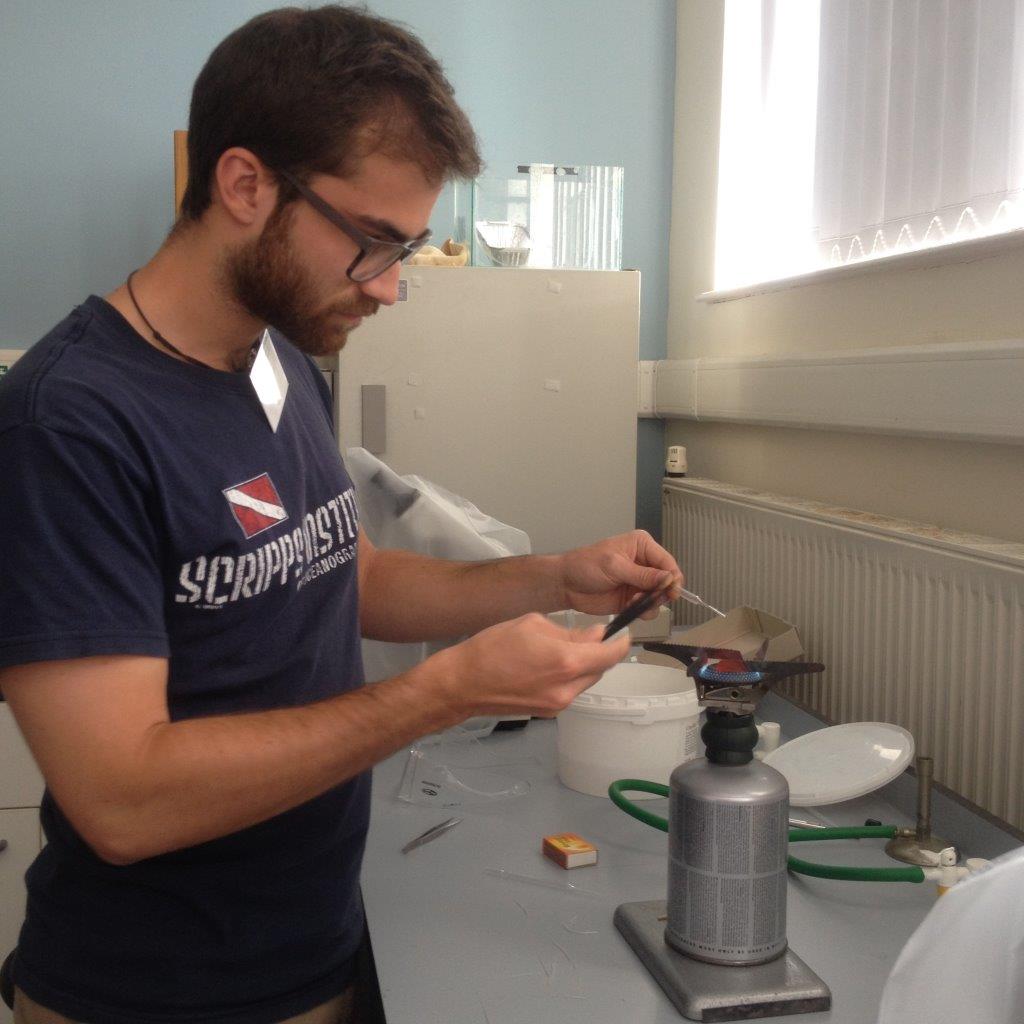
 This is a great career that stimulates you at any moment of your life, and if you are curious, motivated, and resourceful, well… this job is waiting for you.
This is a great career that stimulates you at any moment of your life, and if you are curious, motivated, and resourceful, well… this job is waiting for you.
In 2018 at POLAR2018 (SCAR/IASC Open Science Conference 2018) he was awarded with the 1st prize for the Association of Polar Early Career Scientists (APECS) Poster Awards (Sector: Africa and Middle). Poster Title: “The Island Mass Effect (IME) on carbon cycling in the plankton ecosystem around the Prince Edward Islands archipelago”.
Luca is current a committee member of APECSSA. Follow @LStirnimann and @apecssa on Twitter

by Ria Olivier | Apr 2, 2020 | Announcement, Research, SCAR, Science
 The Call for SANAP Proposal submission is 30 April. It is important that within the proposal principal investigators need to look at data management. Below information to help with the proposal.
The Call for SANAP Proposal submission is 30 April. It is important that within the proposal principal investigators need to look at data management. Below information to help with the proposal.
“The amount of time and money required for coding, checking, computerizing, and documenting the data is frequently underestimated in planning a study. Successful data management depends on a sound organization that has mapped out in advance all the data preparation, processing, and documentation steps and is ready to implement these steps when data collection is about to commence. In other words, the data management system should be fully operational before the project gets buried under an avalanche of incoming data that need to be coded, checked, and entered.” Data Collection and Analysis by M Stouthamer-Loeber & W van Kammen .
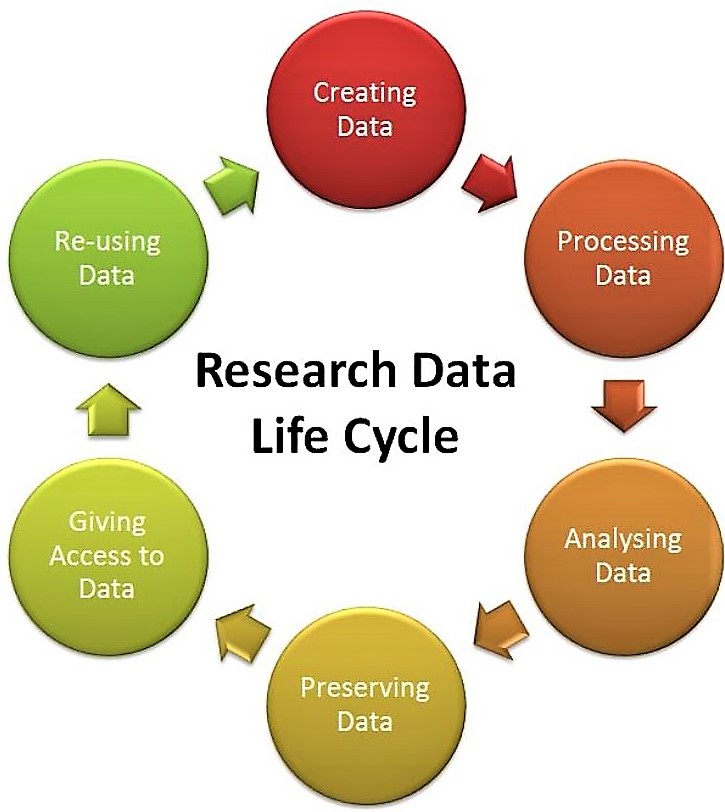 The Marine and Antarctic Research Strategy (2016) states that “Data transfer, access and reliability remain a challenge when working in this research sector. Proper centralized management of data emanating from the ocean, Antarctica and the Islands is required to meet both national and international data requirements. Systems that make the data available to national and international users are required. This would require appropriate management, so as to guarantee the integrity of the data. Obviously, reliable access to this data would also be critical.”
The Marine and Antarctic Research Strategy (2016) states that “Data transfer, access and reliability remain a challenge when working in this research sector. Proper centralized management of data emanating from the ocean, Antarctica and the Islands is required to meet both national and international data requirements. Systems that make the data available to national and international users are required. This would require appropriate management, so as to guarantee the integrity of the data. Obviously, reliable access to this data would also be critical.”
The South African Antarctic and Southern Ocean Research Plan. 2014-2024 highlights data dynamics within SANAP. “Data transfer, access and reliability remain a challenge when working in the region. Proper centralized management of data emanating from the Southern Ocean and Antarctic is required, to meet both national and international data requirements. Systems that make the data available to national and international users are required. This would require appropriate management, so as to guarantee the integrity of the data. Obviously, reliable access to this data would also be critical.”
 Scientific Committee on Antarctic Data Management. “Data and information are valuable and irreplaceable resources. Proper management of data and information is not an “add-on” or an additional task; it is a fundamental aspect of modern science”.
Scientific Committee on Antarctic Data Management. “Data and information are valuable and irreplaceable resources. Proper management of data and information is not an “add-on” or an additional task; it is a fundamental aspect of modern science”.
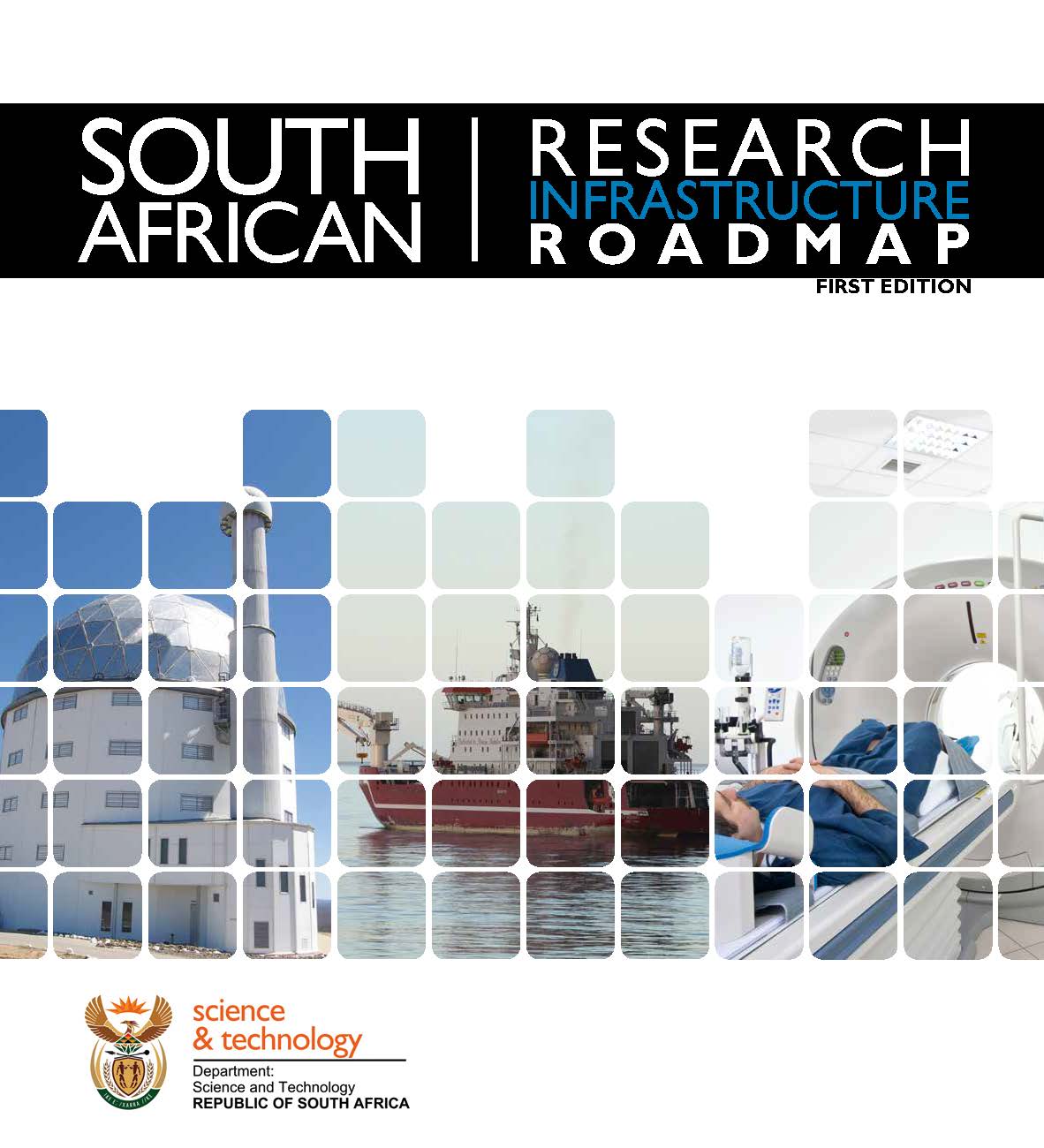 From the Department of Science and Innovation: “To complement the focus on global infrastructure in South Africa, a South African Research Infrastructure Roadmap (SARIR) has been developed to facilitate a research infrastructure investment programme. At the very least, information and communication technologies and data management services will be a fundamental part of every type of research infrastructure. Data-driven science implies that many of the research teams will base their scientific activity on the processing of collected data and remote access. Data management services are therefore essential to ensure the competitiveness of research groups.”
From the Department of Science and Innovation: “To complement the focus on global infrastructure in South Africa, a South African Research Infrastructure Roadmap (SARIR) has been developed to facilitate a research infrastructure investment programme. At the very least, information and communication technologies and data management services will be a fundamental part of every type of research infrastructure. Data-driven science implies that many of the research teams will base their scientific activity on the processing of collected data and remote access. Data management services are therefore essential to ensure the competitiveness of research groups.”
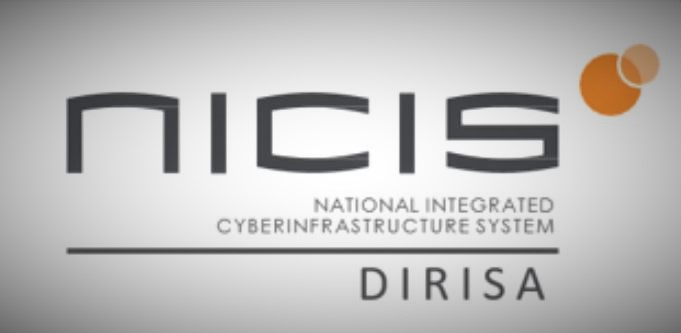 NICIS And DIRISA Function within the department of Science and Innovation. The Data Intensive Research Initiative of South Africa(DIRISA) forms part of the National Integrated Cyber Infrastructure System(NICIS). DIRISA aims to Implement a Certified
NICIS And DIRISA Function within the department of Science and Innovation. The Data Intensive Research Initiative of South Africa(DIRISA) forms part of the National Integrated Cyber Infrastructure System(NICIS). DIRISA aims to Implement a Certified Trusted Repository for research data and to operationally deploy and maintain data services and virtual research environments. They aim to initiate the establishment of federated data repositories. DIRISA is required to formulate national strategic frameworks for data intensive research and data stewardship
Trusted Repository for research data and to operationally deploy and maintain data services and virtual research environments. They aim to initiate the establishment of federated data repositories. DIRISA is required to formulate national strategic frameworks for data intensive research and data stewardship
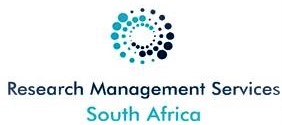 The Research Management Services of South Africa provide support for qualitative Data Analysis. Qualitative data analysis for empirical and theoretical data for students and staff using ATLAS.ti. They offer analysis for any research project that includes code qualitative data, categorise data, provide thematic reports and offer advice on how to interpret these themes by invoking the theory/literature. (Contact info@rms-sa.org)
The Research Management Services of South Africa provide support for qualitative Data Analysis. Qualitative data analysis for empirical and theoretical data for students and staff using ATLAS.ti. They offer analysis for any research project that includes code qualitative data, categorise data, provide thematic reports and offer advice on how to interpret these themes by invoking the theory/literature. (Contact info@rms-sa.org)
Research Data Alliance announce that with the recent cancellation of Plenary 15 in Melbourne, Australia, the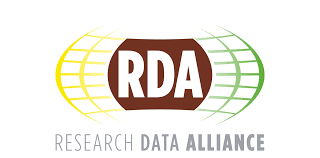 local organising committee, RDA Technical Advisory Board and RDA Secretariat the RDA Virtual Plenary 15 (VP 15), taking place 18 March – 10 April 2020. VP 15 will offer remote access to many of the sessions that were planned to take place in Melbourne.
local organising committee, RDA Technical Advisory Board and RDA Secretariat the RDA Virtual Plenary 15 (VP 15), taking place 18 March – 10 April 2020. VP 15 will offer remote access to many of the sessions that were planned to take place in Melbourne.

by Ria Olivier | Mar 18, 2020 | Discover, Jobs, Legacy, Marion Island, Research, SANAP, SCAR, Science
I completed all my science degrees at the University of Pretoria after some time at Wits studying law. I was fortunate to be appointed at Stellenbosch University in 2000, spent 2001 in France, and returned to Stellenbosch University in 2002 where I worked first as a Senior Technical Officer, then as a Researcher and finally an Associate Professor before relocating to the University of Johannesburg in 2011, 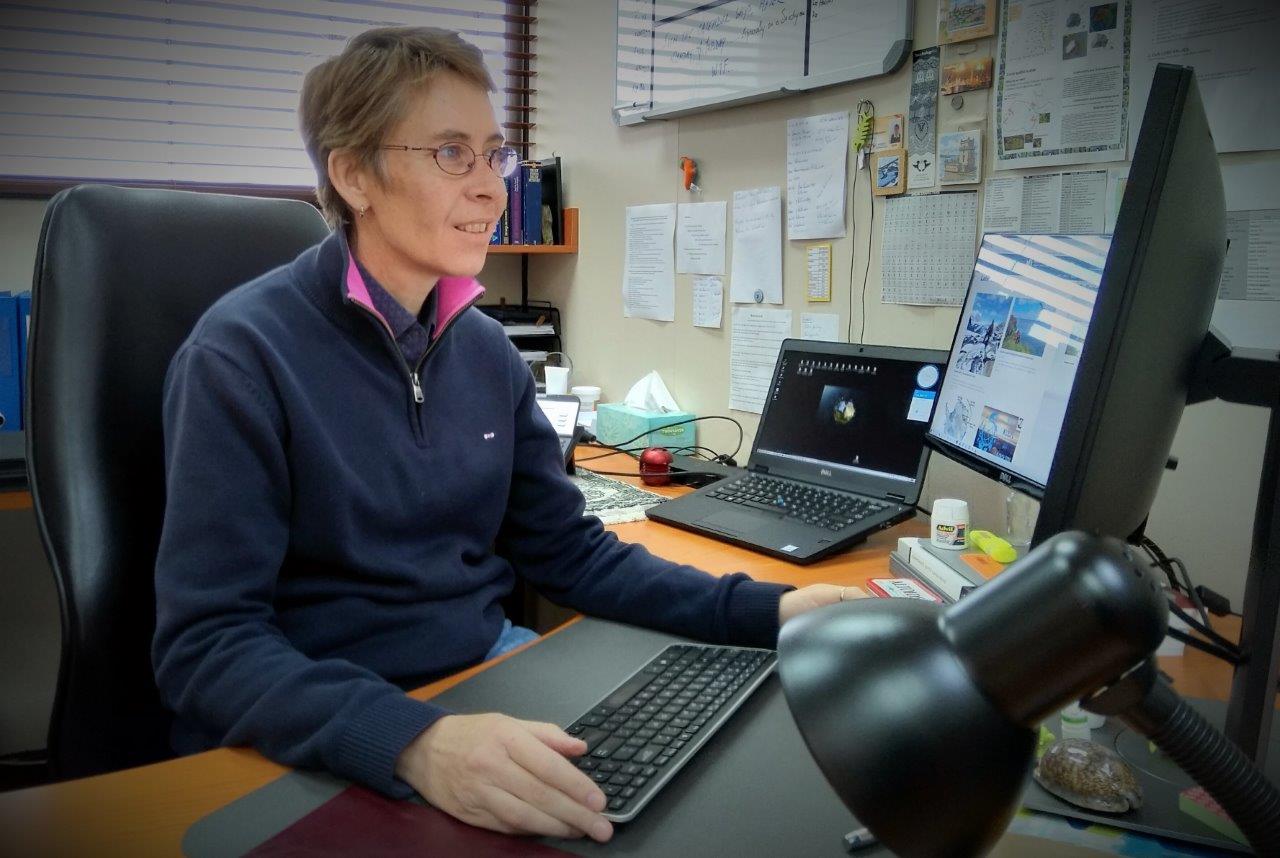 and became a Full Professor in 2012. Our research group at UJ transitioned into a Research Centre, and we currently house a number of postdoctoral fellows and postgraduate students. We have collaborations with a number of groups both within South Africa, and internationally.
and became a Full Professor in 2012. Our research group at UJ transitioned into a Research Centre, and we currently house a number of postdoctoral fellows and postgraduate students. We have collaborations with a number of groups both within South Africa, and internationally.
I have been involved in research on the Prince Edward 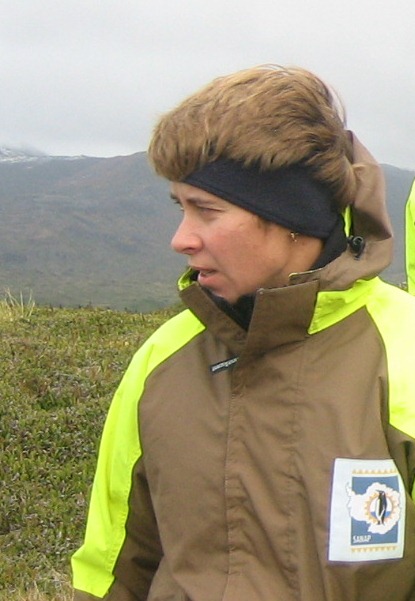 Islands since 2004 and have been fortunate to work with some of the legends as well as bright upcoming researchers (then students, now fully established and leading their own research groups). For my sins, I was appointed as Chief shore-based Scientist in 2006 (the first time that a woman held this position), and managed to get all people to relevant huts on time, even though we almost had to put together a rescue party to retrieve Valdon Smith and Sarette Slabber from Mixed Pickle (typical Marion Island bad weather meant that they could not walk over Azorella Kop). Thankfully the weather cleared, and all shore-based people made it back to the SA Agulhas I.
Islands since 2004 and have been fortunate to work with some of the legends as well as bright upcoming researchers (then students, now fully established and leading their own research groups). For my sins, I was appointed as Chief shore-based Scientist in 2006 (the first time that a woman held this position), and managed to get all people to relevant huts on time, even though we almost had to put together a rescue party to retrieve Valdon Smith and Sarette Slabber from Mixed Pickle (typical Marion Island bad weather meant that they could not walk over Azorella Kop). Thankfully the weather cleared, and all shore-based people made it back to the SA Agulhas I.
Bettine van Vuuren is currently the Chair of the South African National Committee for SCAR, and a Principal Investigator in the South African National Antarctic Programme (SANAP) – see Biocomplexity: Understanding biological patterns in space and time.
Why you love your career in science?
I have always thought that animals are interesting and wondered why they act in certain ways. Why do some dogs get on well, while others fight? How do bees know where to find 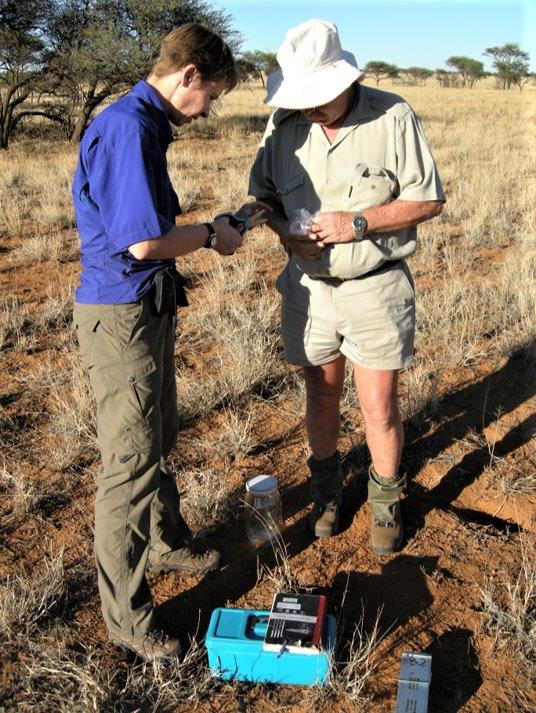 flowers and pollen, and how do they get back to their hives? Are they really all female? Why are some species so successful while others are continuously threatened and faced with extinction; especially considering that our world is changing much faster than ever before?
flowers and pollen, and how do they get back to their hives? Are they really all female? Why are some species so successful while others are continuously threatened and faced with extinction; especially considering that our world is changing much faster than ever before? 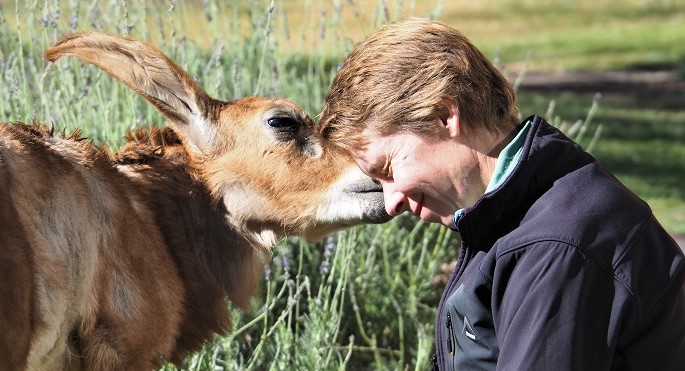
Once I understood that the answers to most of these questions have a strong genetic basis, I was hooked. My work allows me to search for the answers to many of these questions, and I work in some of the most extraordinary and beautiful places on earth (from our hot and dry desert and semi-desert regions to extremely wet and cold sub-Antarctic islands). I am privileged to work and interact with extremely talented people (both within and outside South Africa; old and young); there is not a day that I am not thankful for the way my life turned out. What is perhaps the strongest motivating factor is that I can make a difference in the lives of younger people (through education, working at the University of Johannesburg), and this is priceless.
Why you believe more women should pursue a career in science?
The first thing to say is that I believe there is nothing that any person can’t do if they apply their mind (and time) to it. We often set our own ceilings based on the general beliefs that society 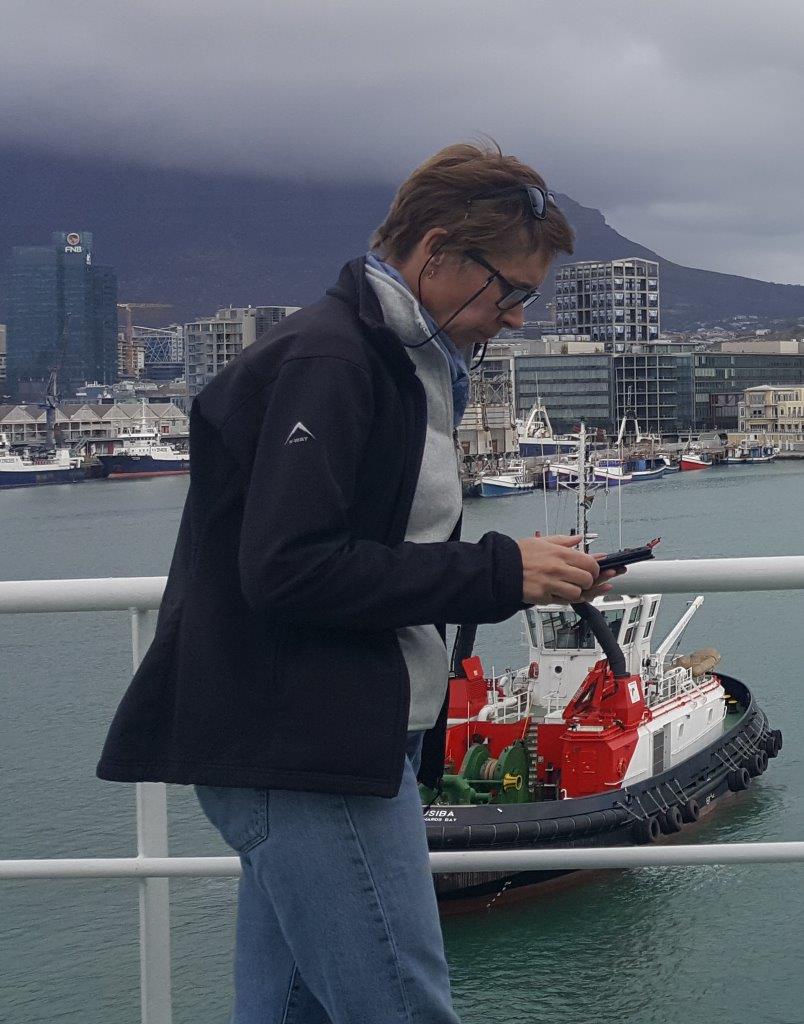 or others impose on us; and it is crucial that we break through these (non-real) boundaries. STEM fields are a case in hand. This is especially true for woman, who traditionally were considered homemakers or child-carers. In STEM specifically, fields such as mathematics, physics and engineering, and traditionally more field-based disciplines such as zoology, botany, or oceanography, are seen as more suited to men (either because women were not traditionally considered as analytically strong, capable to work in the field, or for that matter, be away from home for any period of time). It is critical that any person (both men and women) should carefully consider what they enjoy, what their specific strengths are (be that a STEM career for a woman, or as a child carer / homemaker for a man), and then pursue that with all their strength and passion. Personally, I was initially directed into a field that I had no interest in (because I could not answer questions asked regarding where I would work if my husband lived in a small town), and from a personal perspective I strongly urge and support woman that want to step out of the “beaten track”, i.e., what is typically expected from you by society, and follow what they are passionate about.
or others impose on us; and it is crucial that we break through these (non-real) boundaries. STEM fields are a case in hand. This is especially true for woman, who traditionally were considered homemakers or child-carers. In STEM specifically, fields such as mathematics, physics and engineering, and traditionally more field-based disciplines such as zoology, botany, or oceanography, are seen as more suited to men (either because women were not traditionally considered as analytically strong, capable to work in the field, or for that matter, be away from home for any period of time). It is critical that any person (both men and women) should carefully consider what they enjoy, what their specific strengths are (be that a STEM career for a woman, or as a child carer / homemaker for a man), and then pursue that with all their strength and passion. Personally, I was initially directed into a field that I had no interest in (because I could not answer questions asked regarding where I would work if my husband lived in a small town), and from a personal perspective I strongly urge and support woman that want to step out of the “beaten track”, i.e., what is typically expected from you by society, and follow what they are passionate about.
Latest research or study you’re working on?
 I am currently involved in a number of larger projects which aim to understand how species (individuals / populations) respond to change. One such project is on sub-Antarctic Marion Island (funded through the South African National Antarctic Programme), where we are assembling the full genomes of a number of macroinvertebrate species, with the ultimate aim to understand genes under selection, and how biotic and abiotic factors shape the genetic diversity on oceanic islands. In South Africa, and in collaboration with national (SANBI) and international partners (an NSF/NRF funded project), we are investigating how reptile species adapt to changing and transformed landscapes, and what the downstream impacts are on their genes, morphology and behaviour. Across the African continent, and in collaboration with the Research Centre in Biodiversity and Genetic Resources (Portugal), we are documenting the spatial genetic patterns in a number of economically important larger antelope species (such as roan- and sable antelope); our work here directly informs South African policies on translocations.
I am currently involved in a number of larger projects which aim to understand how species (individuals / populations) respond to change. One such project is on sub-Antarctic Marion Island (funded through the South African National Antarctic Programme), where we are assembling the full genomes of a number of macroinvertebrate species, with the ultimate aim to understand genes under selection, and how biotic and abiotic factors shape the genetic diversity on oceanic islands. In South Africa, and in collaboration with national (SANBI) and international partners (an NSF/NRF funded project), we are investigating how reptile species adapt to changing and transformed landscapes, and what the downstream impacts are on their genes, morphology and behaviour. Across the African continent, and in collaboration with the Research Centre in Biodiversity and Genetic Resources (Portugal), we are documenting the spatial genetic patterns in a number of economically important larger antelope species (such as roan- and sable antelope); our work here directly informs South African policies on translocations.
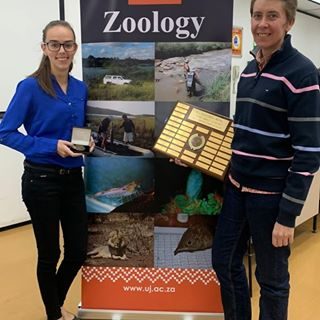
Student: Daniela Monsanto
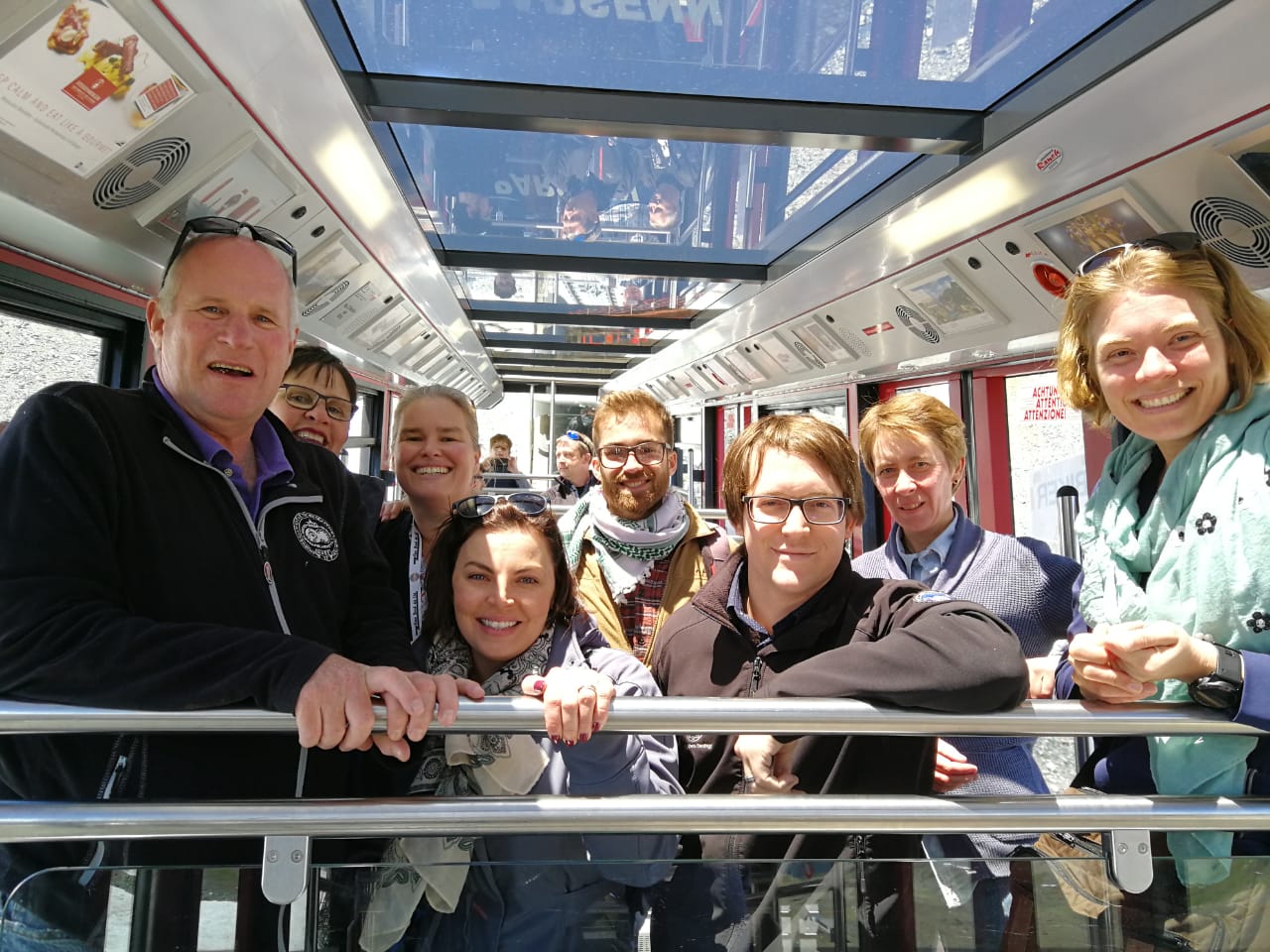
Colleagues & Students at a conference
Students often ask me about their future careers, what they can do with a BSc degree (or broader, a Science degree), or where they will find employment. And my answer is always the same: You can be whatever you want to be. The ultimate aim of science education should be to train students to critically assess situations, to learn how to solve complex problems, and to find solutions to questions. If you have mastered this skill, you can become the President of South Africa, an artisan, an entrepreneur, or a brilliant scientist.
Presentation on Youtube: UJ zoologist on the management and eradication of invasive species
Profile on Wikipedia and on Researchgate
Follow Bettine on Twitter @bettinevv
Visit  website www.molzoolab.co.za
website www.molzoolab.co.za



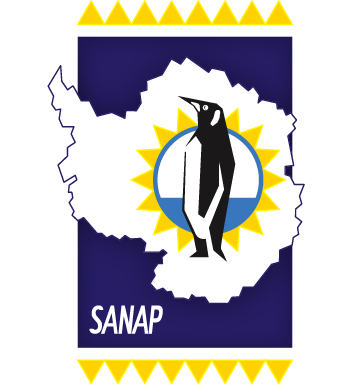



 Link to the survey:
Link to the survey: 





 South Africa has been part of SCAR since 1959 and over the years researchers of South Africa attended these conferences. Over the past decades, principal investigators of SANAP and their students gave oral and poster presentations. This year the
South Africa has been part of SCAR since 1959 and over the years researchers of South Africa attended these conferences. Over the past decades, principal investigators of SANAP and their students gave oral and poster presentations. This year the 

 Luca Stirnimann received his BSc at the
Luca Stirnimann received his BSc at the 


 From 2017, he is a PhD student at the
From 2017, he is a PhD student at the 
 Earth science, in general, has always been fascinating to me and since I was little, my desire was to discover and learn new things related to our oceans.
Earth science, in general, has always been fascinating to me and since I was little, my desire was to discover and learn new things related to our oceans.

 Thanks to oceanography, I can attend fantastic expeditions anywhere in the world, exploring from the icy polar seas to the warmer waters of the equator, spending weeks or even months on board of research vessels. During these trips, I always meet colleagues and extraordinary scientists that share the same interests and passions of mine, even if they are from different fields. Furthermore, coming to South Africa, I joined two great scientific communities: one is the
Thanks to oceanography, I can attend fantastic expeditions anywhere in the world, exploring from the icy polar seas to the warmer waters of the equator, spending weeks or even months on board of research vessels. During these trips, I always meet colleagues and extraordinary scientists that share the same interests and passions of mine, even if they are from different fields. Furthermore, coming to South Africa, I joined two great scientific communities: one is the 
 This is a great career that stimulates you at any moment of your life, and if you are curious, motivated, and resourceful, well… this job is waiting for you.
This is a great career that stimulates you at any moment of your life, and if you are curious, motivated, and resourceful, well… this job is waiting for you.
 The Call for
The Call for  The
The  From the Department of Science and Innovation: “To complement the focus on global infrastructure in South Africa, a
From the Department of Science and Innovation: “To complement the focus on global infrastructure in South Africa, a 
 Trusted Repository for research data and to operationally deploy and maintain data services and virtual research environments. They aim to initiate the establishment of federated data repositories. DIRISA is required to formulate national strategic frameworks for data intensive research and data stewardship
Trusted Repository for research data and to operationally deploy and maintain data services and virtual research environments. They aim to initiate the establishment of federated data repositories. DIRISA is required to formulate national strategic frameworks for data intensive research and data stewardship local organising committee, RDA Technical Advisory Board and RDA Secretariat the
local organising committee, RDA Technical Advisory Board and RDA Secretariat the 
 and became a
and became a  Islands since 2004 and have been fortunate to work with some of the legends as well as bright upcoming researchers (then students, now fully established and leading their own research groups). For my sins, I was appointed as Chief shore-based Scientist in 2006 (the first time that a woman held this position), and managed to get all people to relevant huts on time, even though we almost had to put together a rescue party to retrieve Valdon Smith and Sarette Slabber from Mixed Pickle (typical Marion Island bad weather meant that they could not walk over Azorella Kop). Thankfully the weather cleared, and all shore-based people made it back to the SA Agulhas I.
Islands since 2004 and have been fortunate to work with some of the legends as well as bright upcoming researchers (then students, now fully established and leading their own research groups). For my sins, I was appointed as Chief shore-based Scientist in 2006 (the first time that a woman held this position), and managed to get all people to relevant huts on time, even though we almost had to put together a rescue party to retrieve Valdon Smith and Sarette Slabber from Mixed Pickle (typical Marion Island bad weather meant that they could not walk over Azorella Kop). Thankfully the weather cleared, and all shore-based people made it back to the SA Agulhas I. flowers and pollen, and how do they get back to their hives? Are they really all female? Why are some species so successful while others are continuously threatened and faced with extinction; especially considering that our world is changing much faster than ever before?
flowers and pollen, and how do they get back to their hives? Are they really all female? Why are some species so successful while others are continuously threatened and faced with extinction; especially considering that our world is changing much faster than ever before? 
 or others impose on us; and it is crucial that we break through these (non-real) boundaries. STEM fields are a case in hand. This is especially true for woman, who traditionally were considered homemakers or child-carers. In STEM specifically, fields such as mathematics, physics and engineering, and traditionally more field-based disciplines such as zoology, botany, or oceanography, are seen as more suited to men (either because women were not traditionally considered as analytically strong, capable to work in the field, or for that matter, be away from home for any period of time). It is critical that any person (both men and women) should carefully consider what they enjoy, what their specific strengths are (be that a STEM career for a woman, or as a child carer / homemaker for a man), and then pursue that with all their strength and passion. Personally, I was initially directed into a field that I had no interest in (because I could not answer questions asked regarding where I would work if my husband lived in a small town), and from a personal perspective I strongly urge and support woman that want to step out of the “beaten track”, i.e., what is typically expected from you by society, and follow what they are passionate about.
or others impose on us; and it is crucial that we break through these (non-real) boundaries. STEM fields are a case in hand. This is especially true for woman, who traditionally were considered homemakers or child-carers. In STEM specifically, fields such as mathematics, physics and engineering, and traditionally more field-based disciplines such as zoology, botany, or oceanography, are seen as more suited to men (either because women were not traditionally considered as analytically strong, capable to work in the field, or for that matter, be away from home for any period of time). It is critical that any person (both men and women) should carefully consider what they enjoy, what their specific strengths are (be that a STEM career for a woman, or as a child carer / homemaker for a man), and then pursue that with all their strength and passion. Personally, I was initially directed into a field that I had no interest in (because I could not answer questions asked regarding where I would work if my husband lived in a small town), and from a personal perspective I strongly urge and support woman that want to step out of the “beaten track”, i.e., what is typically expected from you by society, and follow what they are passionate about. I am currently involved in a number of larger projects which aim to understand how species (individuals / populations) respond to change. One such project is on sub-Antarctic Marion Island (funded through the South African National Antarctic Programme), where we are assembling the full genomes of a number of macroinvertebrate species, with the ultimate aim to understand genes under selection, and how biotic and abiotic factors shape the genetic diversity on oceanic islands. In South Africa, and in collaboration with national (SANBI) and international partners (an NSF/NRF funded project), we are investigating how reptile species adapt to changing and transformed landscapes, and what the downstream impacts are on their genes, morphology and behaviour. Across the African continent, and in collaboration with the Research Centre in Biodiversity and Genetic Resources (Portugal), we are documenting the spatial genetic patterns in a number of economically important larger antelope species (such as roan- and sable antelope); our work here directly informs South African policies on translocations.
I am currently involved in a number of larger projects which aim to understand how species (individuals / populations) respond to change. One such project is on sub-Antarctic Marion Island (funded through the South African National Antarctic Programme), where we are assembling the full genomes of a number of macroinvertebrate species, with the ultimate aim to understand genes under selection, and how biotic and abiotic factors shape the genetic diversity on oceanic islands. In South Africa, and in collaboration with national (SANBI) and international partners (an NSF/NRF funded project), we are investigating how reptile species adapt to changing and transformed landscapes, and what the downstream impacts are on their genes, morphology and behaviour. Across the African continent, and in collaboration with the Research Centre in Biodiversity and Genetic Resources (Portugal), we are documenting the spatial genetic patterns in a number of economically important larger antelope species (such as roan- and sable antelope); our work here directly informs South African policies on translocations.


